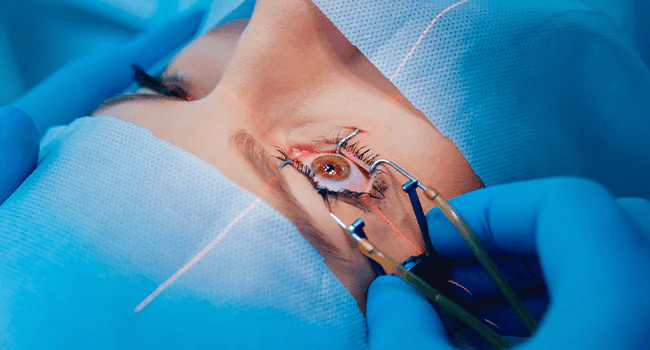LASIK eye surgery is a popular procedure that can significantly improve your vision, reducing the need for glasses or contact lenses. While LASIK offers the promise of better sight, it’s important to take extra care of your eyes during recovery. One of the common questions patients ask is when they can resume swimming after surgery.
Risks of Swimming After LASIK Surgery
Swimming after LASIK surgery can increase the risk of complications. Here are some of the potential risks:
1. Chlorinated Pool Water
Swimming pools are treated with chlorine to disinfect the water. While chlorine helps keep pools clean, it can harm eyes that are still healing after LASIK surgery. Chlorine can disrupt the tear film that protects your eyes, leading to dryness, irritation, and discomfort. In some cases, chlorine exposure can also trigger sensitivity and redness in the eyes.
2. Natural Bodies of Water
Swimming in natural bodies of water like lakes, rivers, seas, or oceans can also be risky after LASIK surgery. Unlike pools, these waters are not chlorinated and may contain harmful microorganisms, bacteria, and other contaminants. These pathogens can enter your eye through the healing corneal flap and cause infections or other serious eye conditions. Additionally, dirt and sand particles in these waters can irritate the eyes and prolong the healing process.
3. Infection Risk
Whether in a pool or natural water, swimming increases the risk of eye infections after LASIK. As the cornea heals, it is more susceptible to infection from waterborne bacteria, which can lead to sight-threatening complications. It is essential to avoid exposing your eyes to water until the healing process is complete.
Time Frame for Swimming After LASIK Surgery
Your surgeon will provide specific instructions for your recovery, but here are some general guidelines to follow:
1. The First Two Weeks
During the first two weeks after LASIK surgery, it’s crucial to avoid all swimming activities. This is the period when your eyes are most vulnerable, and the corneal flap is still healing. Exposing your eyes to water during this time increases the risk of infection and other complications. Additionally, you should avoid using soap, shampoo, or any other chemicals near your eyes to prevent irritation.
2. The Third Week
After two weeks, if your eyes are healing well, you may be able to return to the pool, but only with protective goggles. Wearing well-fitting goggles can help shield your eyes from water and reduce the risk of irritation or infection. However, it’s still advisable to consult your surgeon before returning to any water-based activities.
3. Four to Five Weeks
Around the four-to-five-week mark, most patients can safely swim without goggles in both swimming pools and natural water bodies. During this time, you can also participate in low-impact water sports. However, you should still be cautious and ensure that your eyes are protected from contaminants and debris.
4. Six Weeks and Beyond
After six weeks, your eyes should be fully healed, and you can resume swimming without any restrictions. At this point, you can enjoy water activities with peace of mind, knowing that your eyes are no longer at risk. However, it's still a good practice to continue wearing sunglasses to protect your eyes from harmful UV rays when outdoors.
Conclusion
While LASIK surgery can transform your vision, taking proper care of your eyes during the recovery process is essential to achieving the best results. Swimming should be avoided during the initial weeks following surgery to prevent complications. Always follow your surgeon’s guidelines and consult them before resuming any water-related activities. By adhering to these precautions, you can protect your eyes and enjoy your new vision for years to come.







